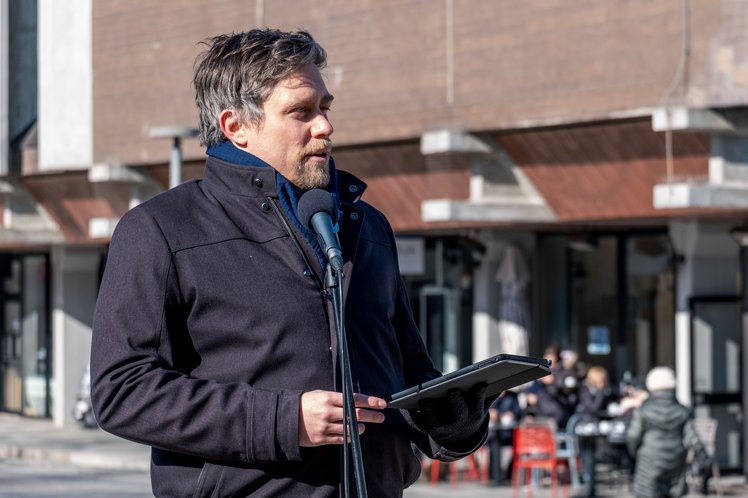Opening of ECoC will be on 08.02.2025

“Today we can solemnly reveal that the European Capital of Culture Nova Gorica – Gorizia will be inaugurated on 8 February 2025, the very day of the Slovene Cultural Day.” With this sentence, we have officially unveiled the date of the opening ceremony of the European Capital of Culture in Gorizia and Nova Gorica. This was the sentence pronounced at three venues: in Ljubljana in Prešeren Square by the Minister of Culture of the Republic of Slovenia Asta Vrečko; in Nova Gorica in Bevk Square by the Director of GO! 2025 Gorazd Božič; and in Gorizia in piazza Vittoria Square by the Mayor of Gorizia Rodolfo Ziberna, and with a letter by the Minister of Culture of the Republic of Italy Gennaro Sangiuliano.
The Minister of Culture Asta Vrečko framed her speech around the idea that cultural workers deserve better, more decent working conditions and stressed the importance of culture and the arts as fundamental elements of social development. “Culture ensures social welfare, its economic contribution is wide-ranging, its educational role is of paramount importance, it is the glue of our community. Culture and the arts recognise diversity, ensure freedom of expression and make language alive, preserve and revive the message of the past, create and shape values for the future.”
“Italy is and should be proud of this recognition that finally brings to light the events of a territory, the Gorizia area, through which the history of Europe has passed and in which a dramatic border has deeply marked the communities living there. But the citizens of Nova Gorica in Slovenia, and Gorizia in Italy, have been able to overcome resentments and divisions and have decided to rebuild their future together, becoming a model and a symbol for Europe and thus obtaining the just recognition of their extraordinary journey”, wrote the Italian minister Gennaro Sangiuliano in his letter announcing the date of the inauguration of the European Capital of Culture, reiterating the Italian government’s absolute closeness to this extraordinary event and adding that on 17 February he will meet the mayor of Gorizia and the regional councillor for culture to talk about GO! 2025.
In his speech in Bevk Square, the GO! 2025 Director Gorazd Božič referred to the recently opened Capitals of Culture in Hungary and Greece. “All the cities visited share a contagious energy which, over the years of preparation, has been transferred from the creators to the citizens and from the citizens to the organisers: a simultaneous sense of pride and responsibility pervades all. The most beautiful thing is when these dimensions intertwine: when citizens start co-creating, the organisers move to the public – and the city experiences the pulse of the capital.” Božič announced that the opening ceremony will be directed by director, scriptwriter and actress Neda Rusjan Bric, also a promoter of the ECoC Nova Gorica – Gorizia. The route “From Station to Station”, as the opening ceremony will be called, will take us through the most significant places of both Nova Gorica and Gorizia, and will foreshadow the artistic highlights of 2025.
The announcement of the date of the European Capital of Culture’s launch took place on the occasion of the recital of Prešeren’s poetry, which the Slovenian Association of Dramatic Artists is organising for the 37th time on the Slovene Cultural Day. Colleagues at Prešeren Square in Ljubljana and Maribor were joined by actors from the Slovenian National Theatre of Nova Gorica, their guests from both sides of the former border, and the members of the Slovene regional Fund for cultural activities JSKD and the vocal group Ardeo.
Related projects
-
ITI Projects - Isonzo-Soča
The Soča-Isonzo is a 138-kilometres long river that originates in the Julian Alps in north-western Slovenia and flows into the Adriatic Sea in Italy. The river represents a shared heritage ...
Read more
ITI Projects - Isonzo-Soča
The Soča-Isonzo is a 138-kilometres long river that originates in the Julian Alps in north-western Slovenia and flows into the Adriatic Sea in Italy. The river represents a shared heritage ...
Read more